
Majestic Wurzburger Dom: The Heart of Würzburg
Wurzburger Dom, also known as St. Kilian's Cathedral, stands as a testament to the rich history and architectural brilliance of Würzburg. This magnificent cathedral, dedicated to St. Kilian, the city's patron saint, is a must-visit for anyone interested in history, art, and culture. The cathedral's stunning Romanesque architecture, coupled with Baroque and Gothic elements, offers a visual feast for tourists. As you step inside, you'll be greeted by the serene beauty of its vast interior, adorned with intricate sculptures, frescoes, and stained glass windows. The cathedral's crypt holds the relics of St. Kilian and his companions, adding a spiritual dimension to your visit. Don't forget to look up at the impressive organ, one of the largest in Germany, which often fills the air with melodious tunes during services and concerts. Surrounding the cathedral is a charming neighborhood, perfect for leisurely strolls. You can explore quaint shops, cozy cafes, and traditional German restaurants offering local delicacies. The area is also home to several other historical landmarks, making it an ideal spot for a day of discovery and relaxation.
Local tips in Wurzburger Dom
- Visit early in the morning to avoid crowds and enjoy a peaceful experience.
- Check the schedule for organ concerts that are often held inside the cathedral.
- Wear comfortable shoes as the surrounding area is best explored on foot.
- Don't miss the crypt where the relics of St. Kilian are housed.
- Take some time to explore the nearby streets for traditional German food and souvenirs.
Majestic Wurzburger Dom: The Heart of Würzburg
Wurzburger Dom, also known as St. Kilian's Cathedral, stands as a testament to the rich history and architectural brilliance of Würzburg. This magnificent cathedral, dedicated to St. Kilian, the city's patron saint, is a must-visit for anyone interested in history, art, and culture. The cathedral's stunning Romanesque architecture, coupled with Baroque and Gothic elements, offers a visual feast for tourists. As you step inside, you'll be greeted by the serene beauty of its vast interior, adorned with intricate sculptures, frescoes, and stained glass windows. The cathedral's crypt holds the relics of St. Kilian and his companions, adding a spiritual dimension to your visit. Don't forget to look up at the impressive organ, one of the largest in Germany, which often fills the air with melodious tunes during services and concerts. Surrounding the cathedral is a charming neighborhood, perfect for leisurely strolls. You can explore quaint shops, cozy cafes, and traditional German restaurants offering local delicacies. The area is also home to several other historical landmarks, making it an ideal spot for a day of discovery and relaxation.
Iconic landmarks you can’t miss
Old Main Bridge
Würzburg's iconic Old Main Bridge: A historic stone bridge adorned with Baroque statues, offering stunning city views and Franconian wine, embodying the city's rich heritage.
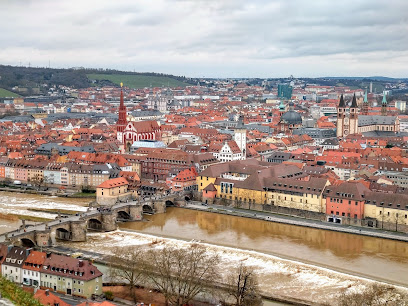
Marienberg Fortress
Explore Würzburg's iconic Marienberg Fortress: a historic landmark offering stunning views, rich museums, and a journey through centuries of Franconian history.

Würzburg Residence
Experience the grandeur of Baroque at the Würzburg Residence, a UNESCO World Heritage site showcasing stunning architecture, art, and history in the heart of Franconia.
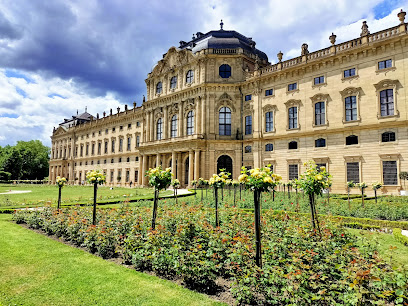
Wurzburg Cathedral
Explore Würzburg Cathedral: A majestic Romanesque basilica with centuries of history, stunning art, and a vibrant spiritual atmosphere in the heart of Würzburg's Old Town.
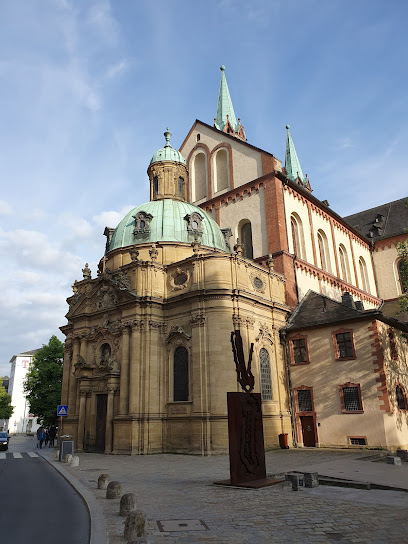
Marktplatz
Experience the heart of Würzburg at the Marktplatz: a historic square brimming with architectural gems, bustling markets, and vibrant cultural events, all in the center of the Old Town.
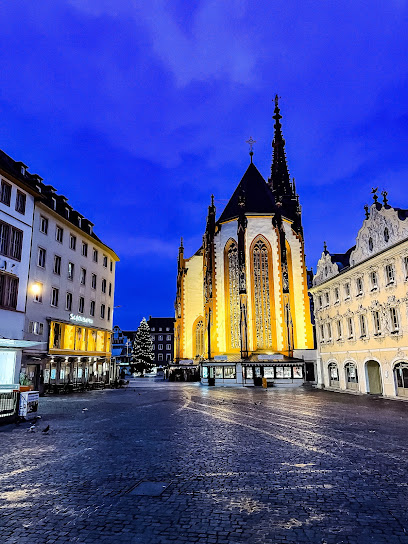
Maria Chappel
Discover the Maria Chapel in Würzburg's heart: a Gothic masterpiece on the Marktplatz, rich in history, art, and spiritual significance, meticulously reconstructed after WWII.
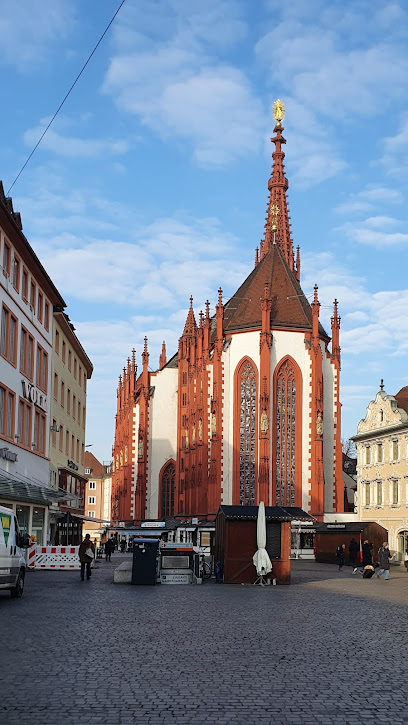
Falkenhaus
Explore the stunning Rococo facade of Falkenhaus in Würzburg, a historical landmark that reflects the rich architectural heritage of Southern Germany.
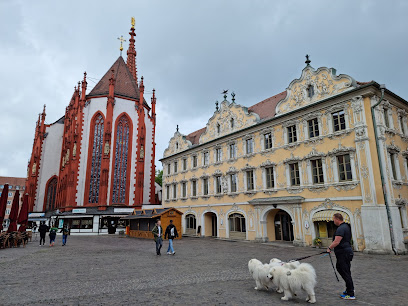
New Munster
Discover Neumünster in Würzburg: A historic church with stunning Baroque architecture, a serene atmosphere, and a rich cultural heritage dating back to the Franconian Apostles.
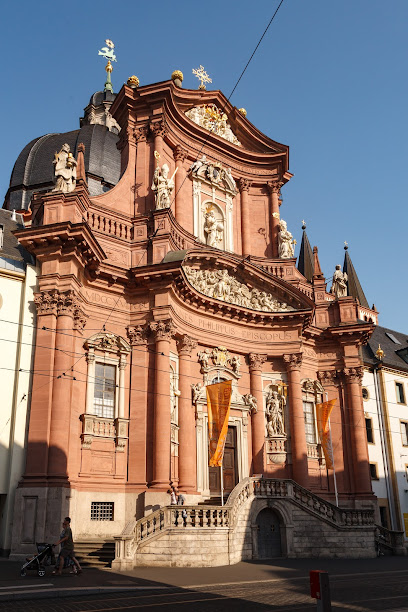
Star Square
Discover Star Square in Würzburg: A charming fountain square in the heart of the Altstadt, surrounded by baroque architecture, offering a tranquil escape and a taste of local life.
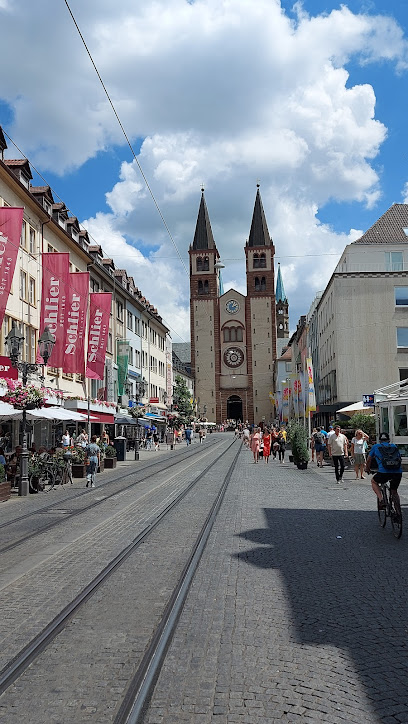
Balthasar-Neumann-Promenade Bastion
Discover the charm of the Balthasar-Neumann-Promenade Bastion, a stunning historical landmark in Würzburg, perfect for leisurely strolls and breathtaking views.
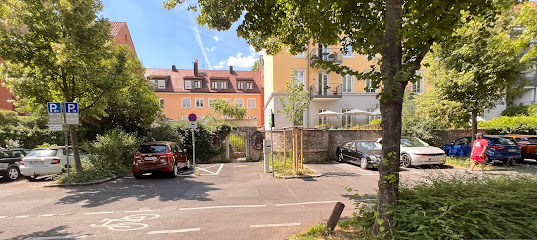
Unmissable attractions to see
Würzburg Residence
Discover the splendor of Würzburg Residence, a UNESCO World Heritage Site renowned for its Baroque architecture and stunning gardens in the heart of Germany.
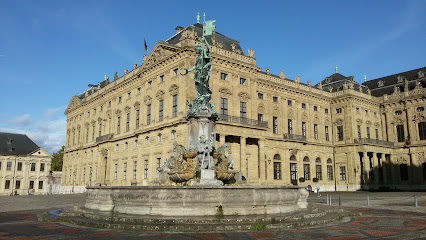
Court Garden
Discover the serene beauty of the Court Garden in Würzburg, a stunning attraction filled with vibrant flowers, sculptures, and historic charm.
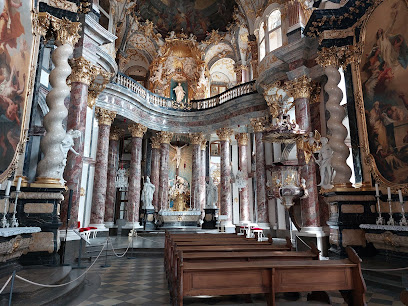
New Munster
Explore the elegance and history of New Munster, a captivating Catholic church in the heart of Würzburg, Germany.
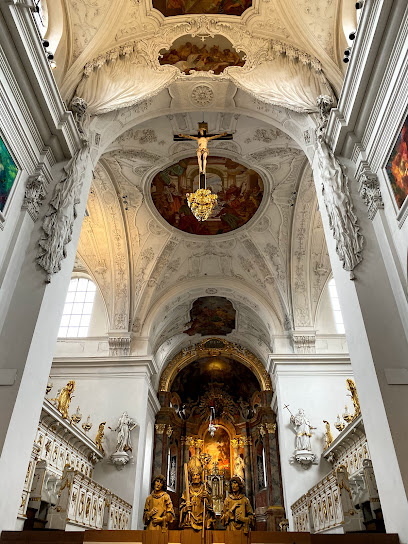
Museum am Dom
Experience the intersection of modern art and history at the Museum am Dom in Würzburg, a cultural gem in the heart of the city.
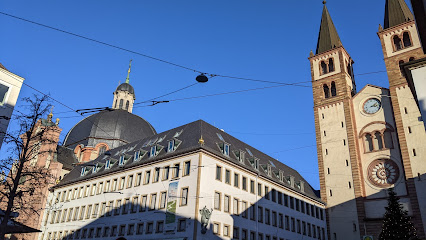
Essential places to dine
Almoço e jantar Brewery Inn Alter Kranen
Discover authentic German cuisine and local brews at Brewery Inn Alter Kranen in Würzburg's historic Altstadt.
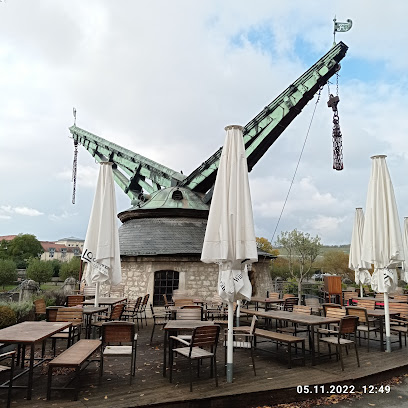
Backöfele
Experience authentic Franconian cuisine at Backöfele in Würzburg – where tradition meets flavor in every bite.
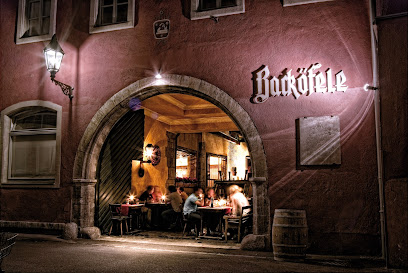
Gasthaus Alte Mainmühle
Experience exquisite local cuisine with breathtaking views at Gasthaus Alte Mainmühle in Würzburg.
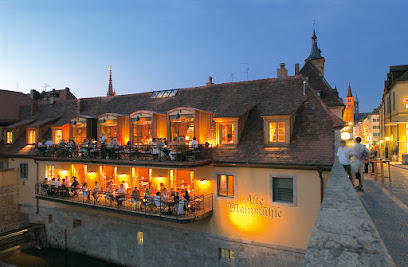
Bürgerspital-Weinstuben
Experience authentic Franconian cuisine at Bürgerspital-Weinstuben – where tradition meets taste in the heart of Würzburg.
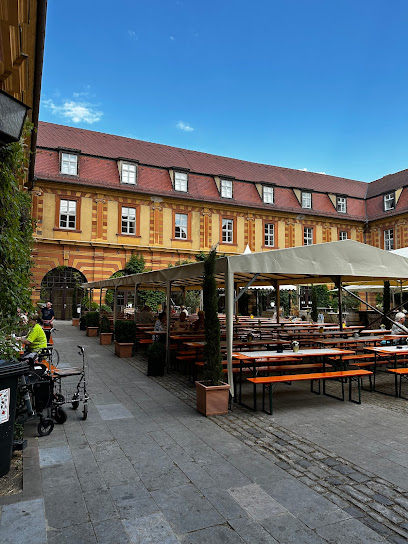
Ristorante Le Candele
Experience authentic Italian cuisine at Ristorante Le Candele in Würzburg - where every dish tells a story.
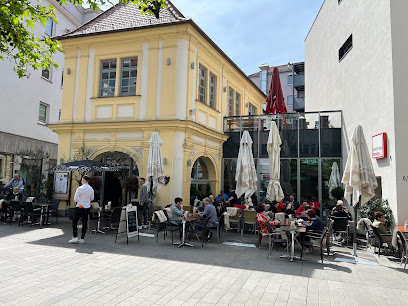
Würzburger Ratskeller
Experience authentic Franconian cuisine at Würzburger Ratskeller – where tradition meets taste in a cozy atmosphere.
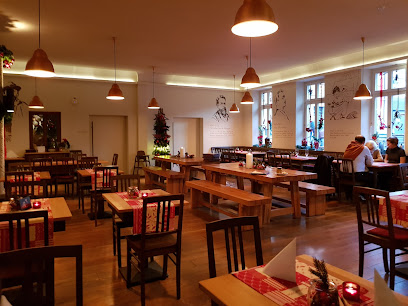
Restaurant & Weinhaus Stachel
Experience authentic German cuisine at Restaurant & Weinhaus Stachel in Würzburg, where tradition meets exquisite local wines.
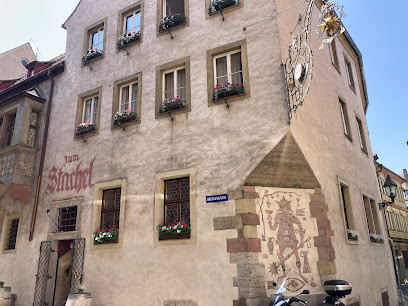
Wirtshaus am Dom Würzburg
Experience authentic German cuisine at Wirtshaus am Dom in Würzburg - where tradition meets taste.
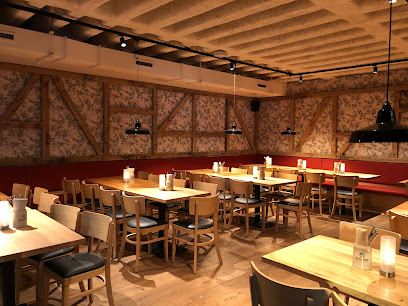
Restaurant Vier Jahreszeiten Würzburg
Experience authentic Franconian cuisine at Restaurant Vier Jahreszeiten in Würzburg's charming beer garden setting.
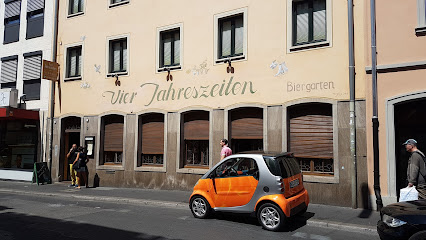
Franziskaner - Würzburg
Discover authentic German cuisine at Franziskaner in Würzburg - where tradition meets flavor in a warm ambiance.
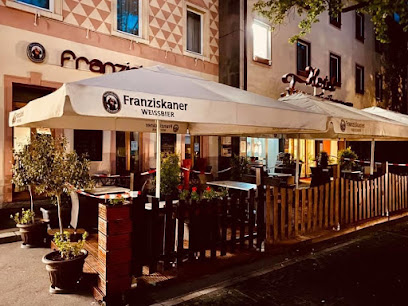
Markets, malls and hidden boutiques
TK Maxx
Explore TK Maxx in Würzburg for unbeatable deals on fashion, homeware, and accessories, offering quality and variety at exceptional prices.
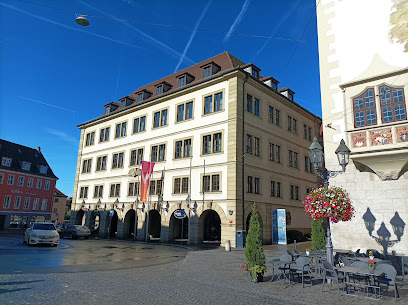
WÖHRL
Experience fashion excellence at WÖHRL - Würzburg's premier clothing store for all ages, offering quality styles for men, women, and children.
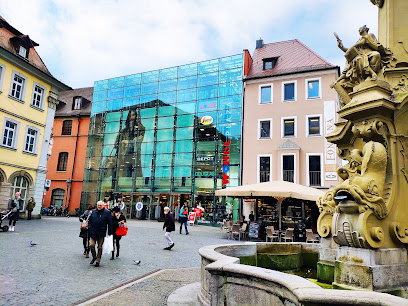
Severin Men's Fashion
Discover stylish menswear at Severin Men's Fashion in Würzburg, where quality meets contemporary trends in the heart of the city.
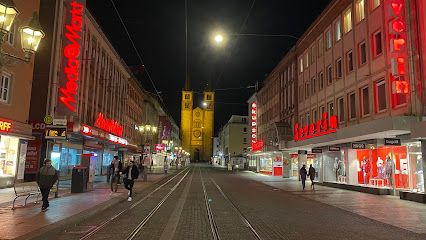
Lindt Boutique Würzburg
Experience the luxury of Swiss chocolate at Lindt Boutique Würzburg, a must-visit for chocolate lovers exploring the heart of the city.
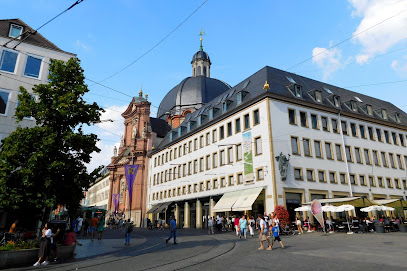
Schlier - Modehaus in Würzburg
Explore Schlier - Modehaus in Würzburg for a diverse selection of fashion, from chic women’s wear to stylish kids’ clothing, perfect for every occasion.
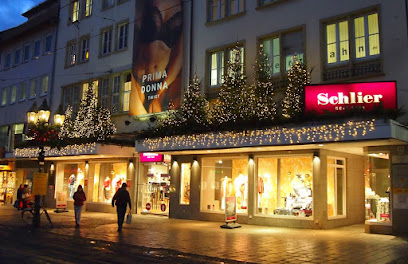
Dompassage
Discover Dompassage in Würzburg, a vibrant shopping mall filled with local shops, dining options, and cultural experiences that reflect the essence of the city.
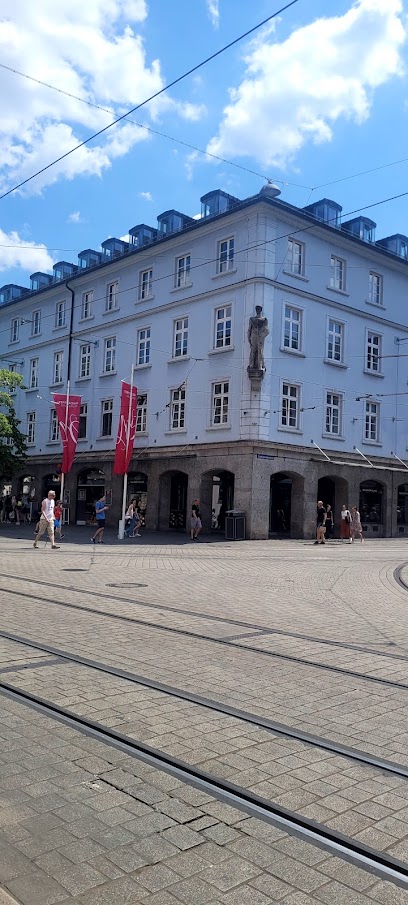
Habakuk Mode
Explore the chic clothing collections for men and women at Habakuk Mode, a stylish destination in the heart of Würzburg's Marktplatz.
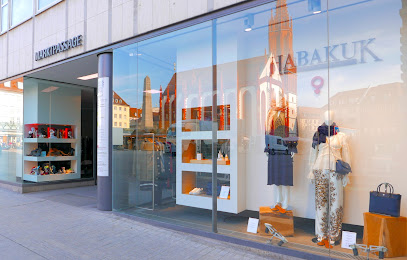
NO REGRETS
Discover unique fashion at NO REGRETS in Würzburg, where individuality meets style in a vibrant clothing store experience.
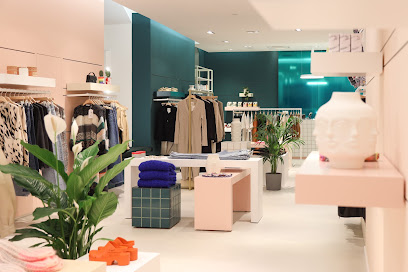
5 fine fashion - Der Laden mit Liebe zum Design
Explore 5 Fine Fashion in Würzburg for unique women's clothing that blends elegance and contemporary style in a welcoming boutique atmosphere.
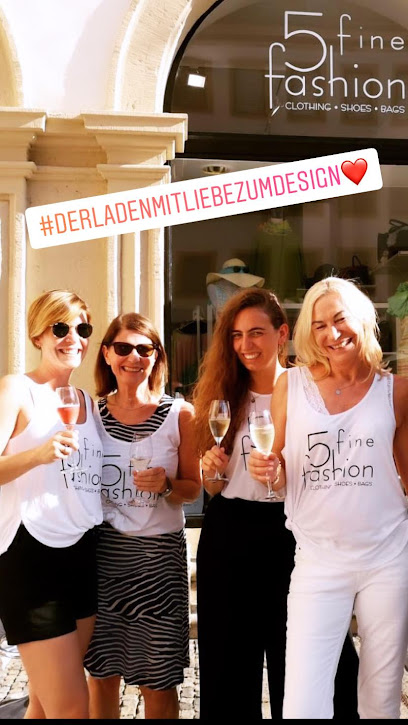
Fred Concept Store
Explore Fred Concept Store in Würzburg for a unique shopping experience filled with stylish local treasures and creative designs.
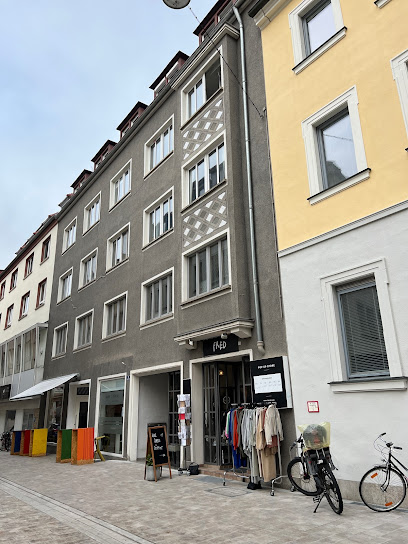
Essential bars & hidden hideouts
Wohnzimmer Bar Würzburg
Discover the lively ambiance of Wohnzimmer Bar in Würzburg, where cocktails meet local culture in a cozy, stylish setting.
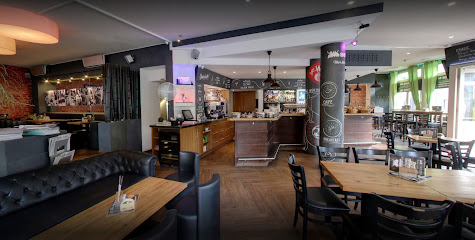
Escalera :: Cocktailbar und Restaurant
Discover the perfect blend of cocktails and culinary delights at Escalera, Würzburg's premier cocktail bar and restaurant, ideal for a memorable night out.
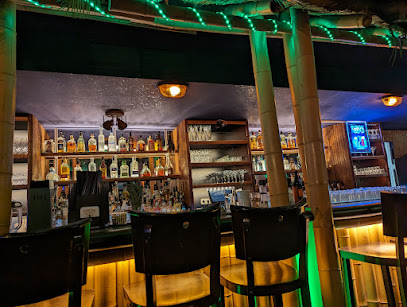
Standard - Würzburg
Experience the vibrant culture and culinary delights at Würzburg's premier gastropub, offering a warm atmosphere and local charm.
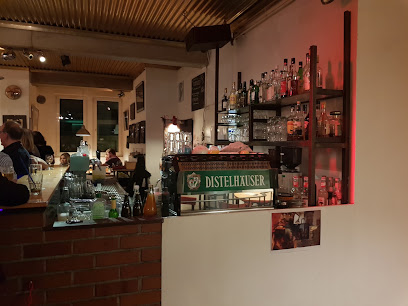
The Red Lion Pub - Würzburg
Experience the authentic Irish pub atmosphere at The Red Lion Pub in Würzburg, where hearty meals and friendly faces await you.
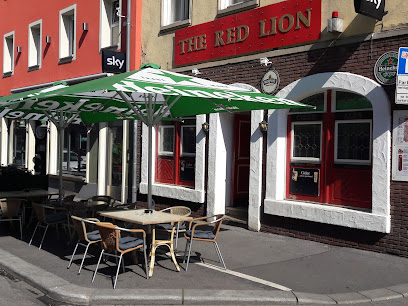
Weinstube und Bierkeller Till Eulenspiegel
Discover the heart of Bavarian culture at Weinstube und Bierkeller Till Eulenspiegel, where exceptional wines and traditional dishes await in a cozy setting.
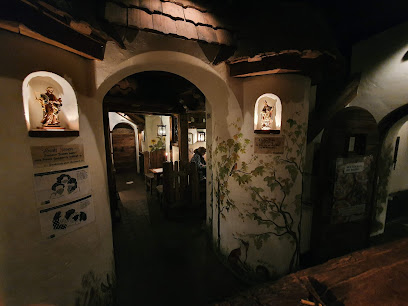
La Bamba - Würzburg
Experience the vibrant nightlife of Würzburg at La Bamba, a lively bar serving refreshing drinks and a unique atmosphere.
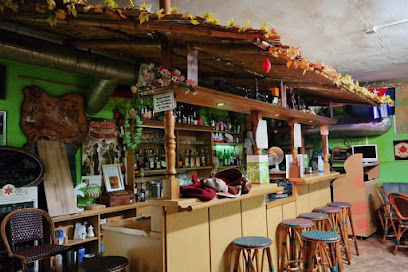
Heinrich
Experience the charm of Würzburg at Heinrich, a cozy wine bar offering exquisite selections and a warm, inviting atmosphere.
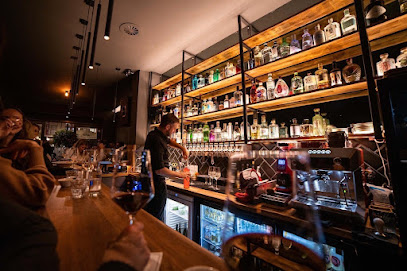
Chase Bar
Experience Würzburg's vibrant nightlife at Chase Bar, where cocktails meet dancing in a stylish atmosphere.
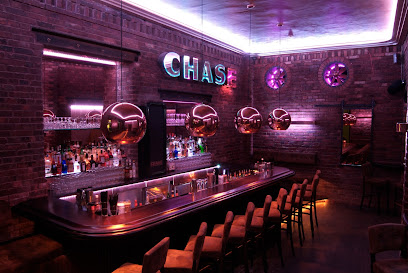
Zum Udo - Würzburg
Discover the vibrant bar scene at Zum Udo in Würzburg, where locals and tourists come together to enjoy exceptional drinks and a lively atmosphere.
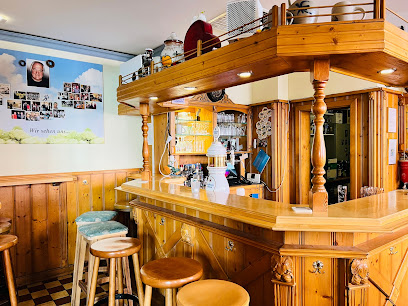
Bar SIGMA - Würzburg
Experience the lively ambiance and exquisite cocktails at Bar SIGMA, the quintessential nightlife destination in Würzburg.
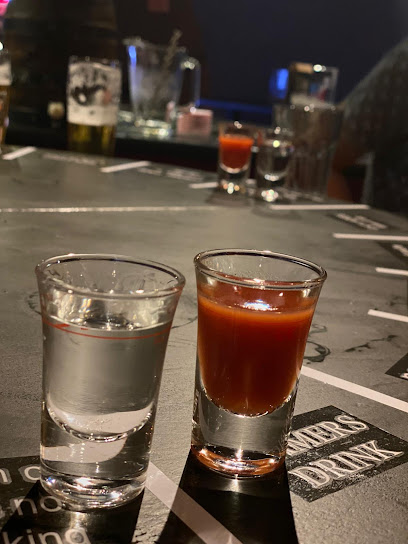
Local Phrases
-
- HelloHallo
[ha-lo] - GoodbyeAuf Wiedersehen
[owf vee-der-zay-en] - YesJa
[ya] - NoNein
[nine] - Please/You're welcomeBitte
[bit-te] - Thank youDanke
[dahn-ke] - Excuse me/SorryEntschuldigung
[ent-shool-di-gung] - How are you?Wie geht es dir?
[vee gayt es deer] - Fine. And you?Gut. Und dir?
[goot oond deer] - Do you speak English?Sprechen Sie Englisch?
[shpre-ken zee eng-lish] - I don't understandIch verstehe nicht
[ikh fer-shtay-e neekt]
- HelloHallo
-
- I'd like to see the menu, pleaseIch möchte bitte die Speisekarte sehen
[ikh merkht-eh bit-te dee shpahy-zuh-kahr-teh zay-en] - I don't eat meatIch esse kein Fleisch
[ikh ess-eh kine flysh] - Cheers!Prost!
[prohst] - I would like to pay, pleaseIch möchte bitte zahlen
[ikh merkht-eh bit-te tsah-len]
- I'd like to see the menu, pleaseIch möchte bitte die Speisekarte sehen
-
- Help!Hilfe!
[hil-fuh] - Go away!Geh weg!
[gay vekh] - Call the Police!Rufen Sie die Polizei!
[roo-fen zee dee poh-lee-tsy] - Call a doctor!Rufen Sie einen Arzt!
[roo-fen zee i-nen ahrts] - I'm lostIch habe mich verloren
[ikh hah-buh meekh fer-loh-ren] - I'm illIch bin krank
[ikh been krank]
- Help!Hilfe!
-
- I'd like to buy...Ich möchte kaufen...
[ikh merkht-eh kow-fen] - I'm just lookingIch schaue nur
[ikh shou-eh noor] - How much is it?Wie viel kostet es?
[vee feel koh-stet es] - That's too expensiveDas ist zu teuer
[dahs ist tsoo toy-er] - Can you lower the price?Können Sie den Preis senken?
[kew-nen zee den price zeng-ken]
- I'd like to buy...Ich möchte kaufen...
-
- What time is it?Wie spät ist es?
[vee shpeht ist es] - It's one o'clockEs ist ein Uhr
[es ist iyn oor] - Half past (10)Halb elf
[halb elf] - MorningMorgen
[mohr-gen] - AfternoonNachmittag
[nahkh-mit-tahk] - EveningAbend
[ah-bent] - YesterdayGestern
[geh-stern] - TodayHeute
[hoi-teh] - TomorrowMorgen
[mohr-gen] - 1Eins
[iyns] - 2Zwei
[tsvai] - 3Drei
[dry] - 4Vier
[feer] - 5Fünf
[foonf] - 6Sechs
[zeks] - 7Sieben
[zee-ben] - 8Acht
[ahkt] - 9Neun
[noyn] - 10Zehn
[tsayn]
- What time is it?Wie spät ist es?
-
- Where's a/the...?Wo ist ein/der...?
[voh ist iyn/dehr] - What's the address?Was ist die Adresse?
[vahs ist dee ah-dreh-seh] - Can you show me (on the map)?Können Sie mir zeigen (auf der Karte)?
[kew-nen zee meer tsai-gen (ouf dehr kahr-teh)] - When's the next (bus)?Wann kommt der nächste (Bus)?
[vahn kommt dehr neh-kste (boos)] - A ticket (to ....)Eine Fahrkarte (nach ....)
[iyn-eh fahr-kahr-teh (nahkh)]
- Where's a/the...?Wo ist ein/der...?
History of Wurzburger Dom
-
The Würzburg Cathedral, known as the Würzburger Dom, was founded in 1040 and is a prime example of Romanesque architecture. It was built under the direction of Bishop Bruno von Würzburg, marking the beginning of a significant spiritual and architectural project in the region. The cathedral became a central place of worship and a symbol of the city's religious importance.
-
During the 16th century, Würzburg, like much of Germany, faced the challenges of the Protestant Reformation. The Catholic Church's response included strengthening the cathedral's role as a bastion of Catholicism. This period saw the commissioning of numerous artworks and renovations aimed at reasserting the church's influence in the region.
-
In the late 17th and early 18th centuries, the Würzburger Dom underwent extensive Baroque renovations under the guidance of renowned architect Balthasar Neumann. The transformation included the addition of a new facade and interior, creating a stunning visual spectacle that attracted pilgrims and tourists alike. The cathedral's interior is adorned with exquisite frescoes and altars that reflect the artistic vibrancy of the Baroque period.
-
Würzburg suffered significant damage during World War II, particularly in 1945 when air raids devastated much of the city, including the Würzburger Dom. The cathedral was heavily damaged, but reconstruction efforts began shortly after the war, culminating in its reopening in 1950. This period of rebuilding reinforced the cathedral's role as a symbol of resilience and hope for the local community.
-
In 1981, the Würzburger Dom was designated a UNESCO World Heritage Site, recognized for its outstanding architectural and historical significance within the context of the Würzburg Residence and its gardens. This designation has bolstered tourism and cultural preservation efforts, ensuring that the cathedral remains a central part of Würzburg's identity and heritage.
Wurzburger Dom Essentials
-
Würzburger Dom is centrally located in Würzburg, making it easily accessible from various neighborhoods. If you're arriving from the Würzburg Hauptbahnhof (main train station), you can take a short walk (approximately 15 minutes) or catch a bus (lines 5 and 15) that will drop you near the Dom. For those coming from the surrounding areas, regional trains frequently connect to Würzburg, and the Dom is a short walk from the main station.
-
The best way to explore the Wurzburger Dom area is on foot, as many attractions are within walking distance. Public transportation options include buses and trams, with lines 1, 3, and 5 serving the vicinity. Bicycles can be rented at various locations throughout the city, and it is common to see locals cycling around. For those who prefer taxis, they are readily available and can be hailed or booked via apps.
-
Würzburg is generally a safe city for tourists. However, it is advisable to remain vigilant, particularly in crowded areas where pickpocketing may occur. While there are no specific high-crime areas targeting tourists in the vicinity of the Dom, it is wise to avoid poorly lit streets at night and to keep personal belongings secure.
-
In case of an emergency, dial 112 for immediate assistance, which covers police, fire, and medical services. The nearest hospital is located a short distance from the Dom, and pharmacies are available for minor health issues. It is advisable to have travel insurance that includes medical coverage.
-
Fashion: Do dress modestly when visiting the Dom, and women should cover their shoulders. Don't wear overly casual clothing like beachwear. Religion: Do respect the sanctity of the place; silence is expected inside the cathedral. Don't use your phone for calls or loud conversations. Public Transport: Do validate your ticket before boarding. Don't eat or drink on public transport. Greetings: Do greet locals with a polite 'Hallo' or 'Guten Tag'. Don't interrupt conversations or be overly intrusive. Eating & Drinking: Do try local wines and dishes at nearby restaurants. Don't waste food or be disrespectful to local customs regarding dining.
-
To experience Wurzburger Dom like a local, consider visiting during a weekday to avoid the weekend tourist crowds. Engage with local shopkeepers in the nearby market, where you can find fresh produce and regional specialties. Attend a service or concert at the cathedral for a unique cultural experience. Don't miss exploring the surrounding gardens for a peaceful retreat after your visit.
Nearby Cities to Wurzburger Dom
-
Things To Do in Rothenburg ob der Tauber
-
Things To Do in Nuremberg
-
Things To Do in Frankfurt
-
Things To Do in Heidelberg
-
Things To Do in Stuttgart
-
Things To Do in Erfurt
-
Things To Do in Koblenz
-
Things To Do in Strasbourg
-
Things To Do in Karlovy Vary
-
Things To Do in Munich
-
Things To Do in Bonn
-
Things To Do in Leipzig
-
Things To Do in Cologne
-
Things To Do in Plzeň
-
Things To Do in Grevenmacher










